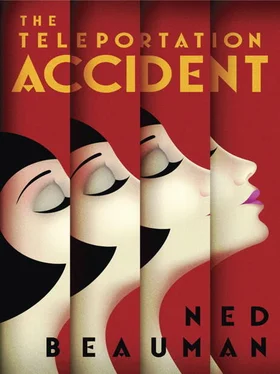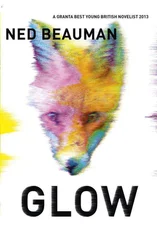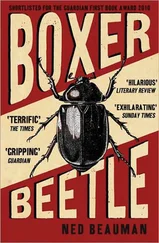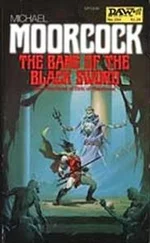The Teleportation Device, meanwhile, had deleted itself along with the building. No part of it could be salvaged for an investigation into what might have gone wrong, and no plans or even sketches could be found in Lavicini’s workshop. Auguste de Gorge was, of course, ruined. And Louis XIV never went to the theatre again.
Two hundred and fifty years later, at the Allien Theatre, a spring sprang. A counterweight dropped. An actor shot across the stage. And a scream was heard.
The original Teleportation Accident was not notorious solely because it was the only time that a set designer was known to have inadvertently and suicidally wrecked a theatre and flattened sections of his audience. It was notorious also because of claims that appeared in certain reports of the cataclysm. Several reliable witnesses recalled that just before the end of the second act they had detected a stench somewhere between rotten metal and rusty meat. Others had felt an icy draught lunge through the theatre. And one (not very reliable) marquis insisted to friends that, as he fled, he had seen grey tentacles as thick as Doric columns slithering moistly out from behind the proscenium arch. Rumours began that — well, that an aforementioned German idiom was more literally applicable here than any post-Enlightenment historian would be willing to credit. Before his death, Lavicini had, after all, been nicknamed ‘the Sorceror’.
Whatever the truth, that was Lavicini’s Teleportation Accident. As for Loeser’s Teleportation Accident, that wasn’t nearly so bad. Nobody died. The Allien Theatre was not rended apart. Klugweil just dislocated a couple of arms.
They didn’t confirm that until later, though. All Loeser and Blumstein could see as they rushed over was that Klugweil was dangling half out of the harness, limbs twisted, face white, eyes abulge. The overall effect reminded Loeser of nothing so much as a set of large pallid male genitalia painfully mispositioned in an athlete’s thong.
‘Why in God’s name did you have to call it the Teleportation Device, you total prick?’ hissed Blumstein to Loeser as they struggled to untangle the actor. ‘I knew this would happen.’
‘Don’t be irrational,’ said Loeser. ‘It would have gone wrong whatever I called it.’ Which, judging by the head-butt he then received from the pendulant Klugweil, was not felt to be a very satisfactory reply.
Two hours later Loeser arrived at the Wild West Bar inside the Haus Vaterland on Potsdamer Platz to find his best friend already waiting for him.
‘What happened to your nose?’ said Achleitner.
‘To answer your question,’ said Loeser indistinctly, ‘I don’t think we’re going to be able to get all that coke from Klugweil tonight as we planned.’ He lit a cigarette and looked around in disgust. The Haus Vaterland, which had been opened the year before last by a shady entrepreneur called Kempinski, was an amusement complex, a kitsch Babel, full of bars, cinemas, stages, arcades, restaurants, and ballrooms, with each nationally themed room (Italian, Spanish, Austrian, Hungarian, and so on, but no British or French, because of Versailles) given its own decor, music, costumes, and food. Up in the Wild West Bar where Loeser and Achleitner now sat, a sullen Negro jazz band wore cowboy hats to perform, which gave a sense of the Haus Vaterland’s dogged commitment to cultural verisimilitude, while downstairs you could take a ‘Cruise along the Rhine’ with artificial lightning, thunder, and rain like in one of Lavicini’s operas. It was as if, in some unfashionable district of hell, the new arrivals had established a random topography of small territorial ghettoes, each decorated to resemble a motherland that after a thousand years in purgatory they only half remembered. The whole place was full of tourists from the provinces, always strolling and stopping and turning and strolling and stopping again for no apparent reason as if practising some decayed military drill, and it was as loud as a hundred children’s playgrounds. But Achleitner insisted on coming here, maintaining that it was good practice for living in the future. Loeser, he said, might think the whole twentieth century was going to look like a George Grosz painting, all fat soldiers with monocles and tarts with no teeth and gloomy cobbled streets, but that vision of darkness and corruption, that Gothic Berlin, was just as artificial and sentimentalised, in its own way, as the work of any amateur countryside watercolourist. When Loeser disputed Kempinski’s prophetism, Achleitner just alluded to Loeser’s ex-girlfriend Marlene.
Loeser had broken up with Marlene Schibelsky three weeks previously after a relationship of seven or eight months. She was a shallow girl, and Loeser knew that he ought not to settle for shallow girls, but she was good in bed, and until the day that either Brain or Penis could win a viable majority in Loeser’s inner Reichstag there had seemed to be no hope of change. What finally broke the deadlock was something that happened at a small cast party in a café in Strandow.
Quite late in the night, Loeser had overheard part of a conversation in a nearby booth about dilettantism in Berlin cultural life, and one of the five or six occupants of that booth was the composer Jascha Drabsfarben. This was surprising for two reasons. Firstly, it was surprising to see Drabsfarben at a party at all, because Drabsfarben didn’t go to parties. And secondly, it was surprising to hear that particular topic arise while Drabsfarben was sitting right there, because in any discussion about dilettantism in Berlin cultural life, Drabsfarben himself was the obvious and unavoidable counter-example, so either at some point someone would have to invoke Drabsfarben’s reputation in the presence of Drabsfarben himself, which would be uncomfortable for everyone because it would sound like flattery and you didn’t flatter a man like Drabsfarben, or else no one would, which would be uncomfortable for everyone too because that elision would throb more and more conspicuously the longer the discussion went on.
Loeser, like most of his friends, was mildly enthusiastic about his own artistic endeavours in the usual sort of way, but Drabsfarben was known to have a devotion so formidable that if he were ever shipwrecked on a rocky coast he would probably build a piano from dried kelp and seagull bones rather than let his work be interrupted even for an afternoon. Sex was nothing to him; politics were nothing to him; fame was nothing to him; and society was nothing to him, except when he thought a particular director or promoter or critic could help him get his work heard, in which case he would appear at precisely as many dinners and receptions as it took to get that individual on his side. His most recent work was an atonal piano concerto derived from an actuary’s table of hot-air balloon accident statistics, and indeed most of his music seemed to demand that the intellectual tenacity of its listeners almost outmatch that of its creator. Drabsfarben, in other words, made Loeser feel like a bit of a fraud. But normally Loeser didn’t resent this. In fact, Loeser sometimes felt that Drabsfarben might be the only man in Berlin he really respected. Which was why it was so upsetting when Hecht said, ‘So many people only seem to have gone into the theatre in the first place because they have some narcissistic social agenda — you know, like … like …’ And then Drabsfarben, who had been almost silent until this point, said, ‘Like Loeser?’
While sober, Loeser could have brushed this off, but two bottles of bad red wine had transformed him into the emotional equivalent of one of those strange Peruvian frogs with transparent skin exposing their jumpy little hearts. He rushed from the party, and Marlene followed him out into the chilly street, where she found him sitting on the kerb, heels in the gutter, weeping, almost whimpering. ‘Is that what they all think of me? Is that really what they all think of me?’ Although he would probably have forgotten all about this small crisis by the following morning, or even by the end of the party, she did her best to comfort him.
Читать дальше












